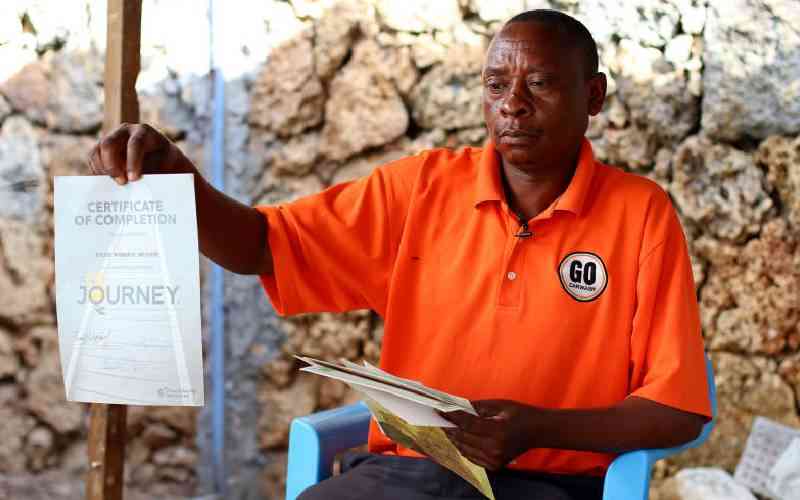By LILLIAN ALUANGA-DELVAUX
Kenya: Women are basking in unprecedented protection from practices that previously denied them matrimonial property and land.
Chapter Five of the Constitution, for instance, provides for enactment of legislation to regulate the recognition and protection of matrimonial property on land matters.
This is further spelt out in supporting legislation like the Land Registration Act.
Section 93 of the Act, for instance, provides that if land is held in the name of one spouse only but the other spouse or spouses contribute by their labour or other means to its productivity, upkeep, and improvement, that spouse qualifies to have acquired an interest in the land in the nature of ownership.
Another big score for women is the provision, within the same Act where spouses are required to be ‘more transparent’ when disposing off family land.
Cases on land at the legal aid clinics last year were high in Nairobi, with 245 cases, 91 in Kisumu and 17 at the Coast.
Overall, 1,502 cases on land have been recorded at the legal aid clinics in the last four years.
While majority of the complainants are women there have been cases where male children have approached Fida-Kenya for legal aid, on behalf of their mothers, on land matters.
But disputes on maintenance top the charts, with over 10,000 cases recorded at Fida-Kenya’s legal aid clinics between 2009 and 2013.
This is distantly followed by those on succession, at 3,043, custody at 2,263 and division of matrimonial property, at 1,373.
Also worth noting is that 2010, the year the new Constitution was birthed, accounts for some of the highest number of cases recorded under various categories, with those on maintenance peaking at 2,872.
While acknowledging that there has been an increased awareness among women, of their, rights, since passage of the Constitution in 2010, Fida-Kenya’s Deputy Executive Director Teresa Omondi says the rise in the search for legal redress results from a ‘combination of factors’.
“While civic education may have contributed towards raising awareness among women, of their rights, the rise in number of women seeking legal aid is also a pointer to what is still happening in our society and the need to change the trends,” she says.
Omondi also attributes the seemingly lower number of cases on domestic violence, and rape to the fact that this isn’t primarily Fida-Kenya’s main mandate.
“The first port of call, ordinarily for such cases, would be the hospital. We usually come in when a client seeks legal action but our experience has been that many shy away from doing so in cases of domestic violence and rape because they don’t want to face the perpetrators. Legal processes can also be long, tedious, and
expensive,” says Omondi.
Stay informed. Subscribe to our newsletter
 The Standard Group Plc is a
multi-media organization with investments in media platforms spanning newspaper
print operations, television, radio broadcasting, digital and online services. The
Standard Group is recognized as a leading multi-media house in Kenya with a key
influence in matters of national and international interest.
The Standard Group Plc is a
multi-media organization with investments in media platforms spanning newspaper
print operations, television, radio broadcasting, digital and online services. The
Standard Group is recognized as a leading multi-media house in Kenya with a key
influence in matters of national and international interest.
 The Standard Group Plc is a
multi-media organization with investments in media platforms spanning newspaper
print operations, television, radio broadcasting, digital and online services. The
Standard Group is recognized as a leading multi-media house in Kenya with a key
influence in matters of national and international interest.
The Standard Group Plc is a
multi-media organization with investments in media platforms spanning newspaper
print operations, television, radio broadcasting, digital and online services. The
Standard Group is recognized as a leading multi-media house in Kenya with a key
influence in matters of national and international interest.








